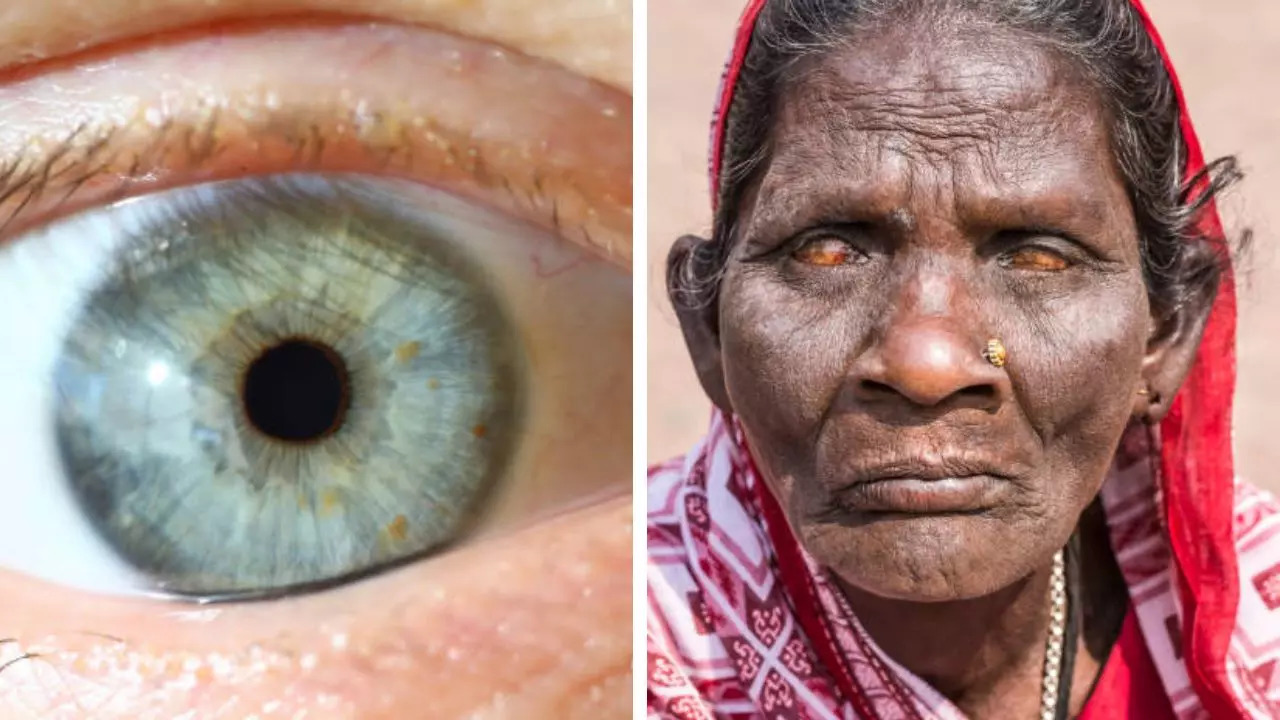Contents
-
news
-
Health
WHO declares India trachoma free; Know what causes this preventable blindness
Trachoma, a bacterial eye infection that causes irreversible permanent blindness – has been eliminated as a public health emergency in India, according to WHO. This achievement, recognized at the Regional Committee meeting, represents a significant decline from five percent blindness due to trachoma in the 1970s to less than one percent today. Read on to learn more about this bacterial disease.

India as well as Nepal, Myanmar and 19 other countries have successfully eliminated trachoma as a public health problem
In a major health achievement, the World Health Organization (WHO) has declared India officially free from trachoma, the Union Ministry of Health and Family Welfare has announced. According to officials, the feat has been achieved after decades of dedicated efforts to save the vision of millions of people from the condition caused by bacterial infection. Chlamydia trachomatis,
Trachoma has been a public health issue in approximately 40 countries, responsible for the blindness or visual impairment of approximately 1.9 million people. Doctors say blindness caused by trachoma is irreversible.
How was the government able to eliminate trachoma?
Once known as the leading cause of blindness – especially in the 1950s and 60s, the government says trachoma has been eradicated with the help of strong public health and community support. “This milestone comes after years of dedicated efforts by the government to protect the vision of millions of people, emphasizing the importance of healthy vision for every individual,” the ministry said in a statement.
According to experts, trachoma has affected more than 50 percent of the population of Gujarat, Rajasthan, Punjab, Haryana, Uttar Pradesh and Nicobar Islands. In the 70s, the condition accounted for 5 percent of blindness cases nationwide.
And so the government adopted the WHO-recommended SAFE strategy and took several measures under the National Blindness and Visual Impairment Control Programme, which included surgery to eliminate infection, antibiotics, and facial hygiene and environmental improvements to reduce transmission. Was. The disease.
The Health Ministry says that by 2018 they were able to reduce trachoma cases to only 0.008 percent. “Through these sustained efforts, India has made significant progress towards trachoma elimination. By 2017, India was declared free from infectious trachoma,” the ministry statement read.
India as well as Nepal, Myanmar and 19 other countries have successfully eliminated trachoma as a public health problem.
What is trachoma?,
According to experts, trachoma causes irreversible blindness and vision loss. This has been an issue in poor and rural areas around the world – particularly due to poor sanitation, limited access to clean water and sanitation, and problems with overcrowding.
Doctors say that trachoma – also known as trachomatous trichiasis, which occurs when you have repeated infections and causes swelling and redness, causing the scar tissue on the inside of your eyelids to peel away – which can lead to The cornea becomes opaque, meaning light cannot enter it.
The condition is also spread by personal contact, infected discharge from the eyes and nose or by touching other people’s hands or infected clothing or bedding. Flies can also spread infectious secretions from one person to another.
Trachoma signs and symptoms
Some signs and symptoms of the early stages of trachoma include:
- red eyes with a feeling of burning
- swollen eyelids
- blurred vision
- watery eyes
- nasal discharge
- pain in eyes
- mild intolerance
- poor vision, possible blindness
Ways to avoid trachoma infection
According to experts, if you live in an area prone to infection, there are some things you can do to protect yourself. These include:
- Pay attention to your hygiene, make sure you clean your face thoroughly, removing any traces of discharge from your eyes and nose.
- wash your hands regularly with soap and water
- Do not share towels or bedding
- Avoid areas where there are flies and insects
Get the latest news live on Times Now with breaking news and top headlines from around the world.


